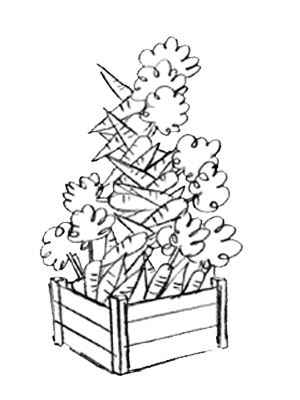An example of the #geekproblem is the refusal, or failure, to engage seriously with standards. In tech, as in life, nothing exists in isolation. Every app, every protocol, every line of code rests on a foundation of inherited agreements: protocols, languages, schemas, and governance systems. These are the invisible scaffolding of the digital world, we call them standards, and whether people like it or not, everything you’re building is already part of an industrial web of standards.
Now, here’s the issue, some people like building sandcastles, it’s fun, creative, and ephemeral and that’s fine for a beach. But when you’re trying to build something social, collective, public, sandcastles don’t last. Tech built without engagement with standards is just that, fantasy castles doomed to wash away with the tide. The #geekproblem is this tendency, to act like you’re inventing from scratch, when you’re just ignoring the foundations that are already holding you up.
So, what is an “Open Industrial Standard”? Think of it this way:
An industrial standard is a shared agreement that enables interoperation. Think HTTP, HTML, RSS, USB, SQL, IP, ActivityPub. These let different things talk to each other, without asking permission.
An open standard means anyone can read it, implement it, and improve it — without a license fee or gatekeeper.
When it works well, it becomes a public commons — infrastructure we all use without even thinking about it.That’s the real power of the #openweb, these boring, beautiful agreements that allow radically different people and machines to cooperate at scale. And yes, the process of defining them can be nebulous and political. There are gatekeepers, old boys’ clubs, turf wars (just ask anyone who’s fought through the W3C or IETF). But without engaging with these processes, you’re not doing tech that scales, you’re doing cosplay.
Tribalism vs standards, some geeks mistake tribal loyalty for technical innovation. They reject standards because they didn’t write them, or because they’re seen as “corporate,” or because it’s not their language/community. This is understandable, but it’s also deeply destructive when building shared tools. This tribalism can be:
Beautiful — as identity, passion, and solidarity.
Problematic — when it blocks interconnection, growth, and real-world relevance.And yes, nationalism is another form of this, some #dotcons are more powerful than countries, so perhaps it’s a useful metaphor. If Amazon or Meta can out-legislate half of Europe, then tribal structures and state structures start to blur. The violence of exclusion, whether through passport or platform ban, operates in similar ways.
The #geekproblem is a 20th-century hangover, a part of the tech tribe that’s clung to personal purity, control, and isolation. But this path is real damage: #climatechaos worsened by inefficient or extractive systems, #failbook dominating sociality through centralised design, #diaspora outreach falling apart from internal ego wars.
The #geekproblem refuses the hard, messy work of social coding, open standards, federation, collective governance. It prefers to build new silos rather than inhabit and improve shared space. We see this constantly. New protocols, platforms, forks. Few links, no bridges. We need to talk about this, as it’s not personal, it’s structural. But people get very personal when you point this out, that’s the #stupidindividualism talking. Instead of building relationships and cooperation, they build sandcastles and expect others to admire them from afar. Meanwhile, the world burns, and tech could be helping, but mostly it isn’t.
In Summary: Open industrial standards are the foundations of anything that actually works at scale. The #geekproblem is a block when it pretends these don’t matter. Sandcastles are nice, but you can’t build a future on them. Let’s engage, not isolate. Link, not fork. Share, not hoard.
That’s the path to a real #openweb, that resists the #deathcult and has a shot at making lasting change.
I’ve been fighting this for 20 years. I wrote this in 2005, and it still holds:
“It’s going slow but we are getting there… One of the main problems seems to be a dysfunctional idea of division of labour – ie. Everyone seems to think I should do everything – as I am pretty useless at many things it’s no wonder it is going so slow… If you wanna see something miraculous happen you gotta wave your arms around a bit and mutter some arcane words… Go on you can do something… Just look at the blog page to see what.”